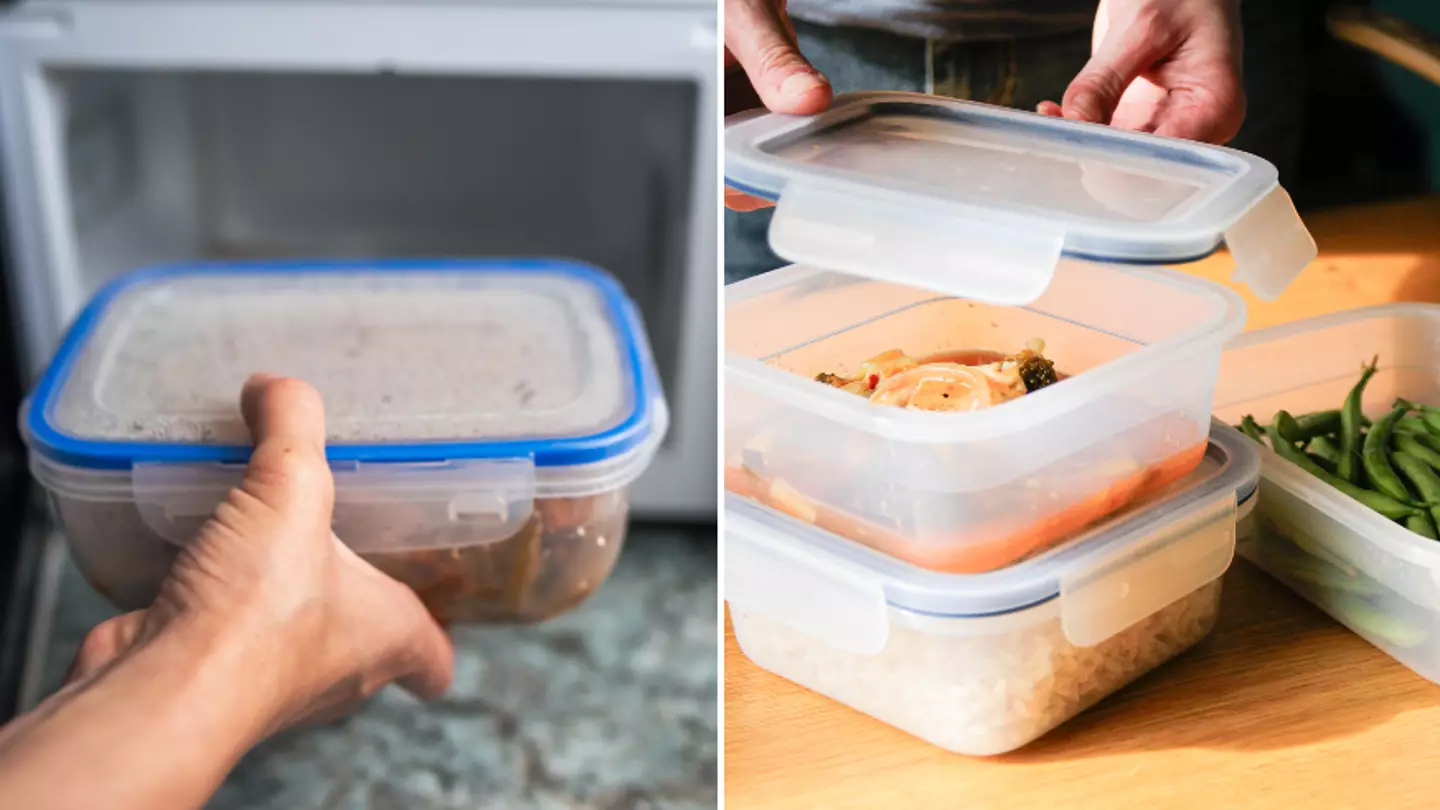
If you’ve got last night’s leftovers sitting in a plastic container and are wondering whether you should re-heat it for your lunch, it’s probably best to leave it.
While reheating most food is fine to do once, it’s not the food that’s the issue with this scenario.
It’s the container.
Even when brands create microwave safe products, experts have weighed in to dispute that any plastic in the microwave can be harmful for your health.
Advert
Any type of plastic container can have an impact on human hormones like oestrogens and testosterone and are known as endocrine-disrupting chemicals.
This can happen when microplastics break down over time and end up in your food, or they can leak from the plastics and soak into your meal.
The worst part? It becomes more common when the plastic is heated.
These hormone disrupters are Bisphenol A, aka BPA, and phthalates.
.jpg)
Dr Sheela Sathyanarayana, a professor of paediatrics at the University of Washington explained: “There have been several experiments that heating liquids or foods in plastics that contain these chemicals will certainly increase your exposure to them. And so that’s why we don’t recommend putting plastics in the microwave.”
But microwaves aren’t the only things you should shy away from.
She said: “We don’t recommend putting them in the dishwasher because it makes them degrade."
Dr Kelly Johnson-Arbor, a toxicologist and medical director at the National Capital Poison Center weighed in too: “Even if a plastic container is labelled microwave safe, it simply means that it won’t melt.”
The Food and Drug Administration has come out to share that the BPA humans consume actually passes through our bodies without being absorbed and that the current amount of exposure isn’t a cause for concern.
But experts differ on this.
.jpg)
Dr Johnson-Arbor explained: “In the US, we are all exposed to plastics.
“You’d have to use a control group from … somewhere they don’t have any plastic. And that’s going to be hard.”
Because of the limited environment that could allow for such a study to be conducted, it’s hard to say whether the FDA is correct about BPA.
Journalist Elana Spivack, a former Scienceline writer, said that it’s hard to cut out plastic completely as it’s so useful, but you should try to cut down instead.
She said: “I use plastic takeout containers for storage [but] I’ve stopped microwaving them.”
Sathyanarayana added: “There’s no getting to zero exposure in an industrialized world.
“It’s more about trying to reduce exposures overall.”
All in all, if you feel like re-heating your leftovers, why not put them on a plate instead?
Or, how about heating it in a baking dish in the oven or on the hob using a pan?
There are so many ways to store your food too that doesn’t include plastic, such as silicone, bamboo and glass containers.
Topics: News, Food and Drink, Health
